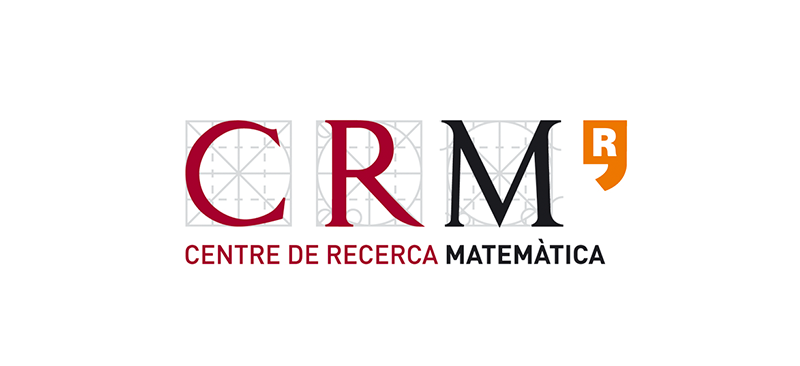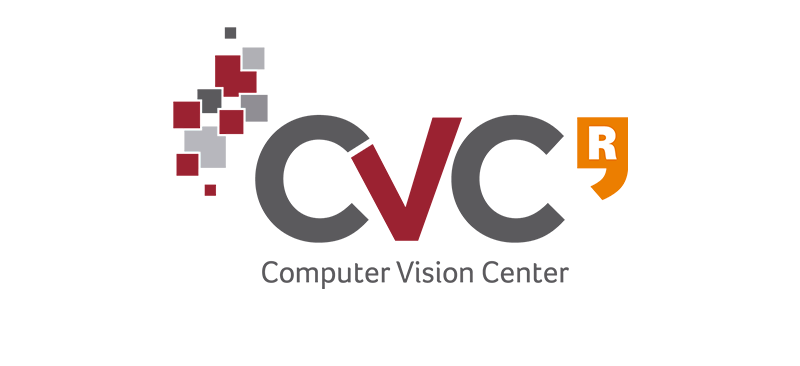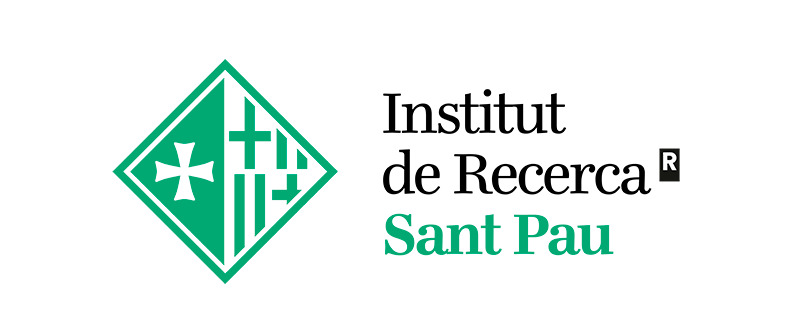Coordinator

Universitat Autònoma de Barcelona (UAB)
The Universitat Autònoma de Barcelona (UAB), with 27.135 undergraduate students, 57 departments, 28 research centers, 68 PhD programmes and over 4.800 PhD students, has consolidated amongst the 200 best universities in the world within the main university rankings (183rd in the Times Higher Education World University Rankings 2023) and is leading Spanish universities in the QS world university ranking (QS WUR 2023).
Established as a Campus of International Excellence (CIE) since 2009, UAB has devoted strong efforts to position itself as one of the leading research and knowledge frameworks in Europe. For this, it has established the Sphere UAB-CIE, a partnership that encompasses the research institutes, business parks, technological companies, foundations, and university hospitals affiliated to UAB or located in the surroundings of UAB to establish a unique environment for collaborations and synergies. Currently, the Sphere UAB-CIE involves 80 organisations from the fields of social sciences, humanities, technology, experimental sciences, and health in which the university has taken on a central role and has stimulated the search for synergies, the optimisation of resources and, in short, the exploration for new frameworks of collaboration.
Implementing partners

Centre d’Estudis Demogràfics (CED)
The Centre for Demographic Studies (CED) works towards several objectives. First and foremost, it focuses its research on furthering our knowledge and understanding of demographic patterns and trends in the Catalan, Spanish and international context through basic and applied research. It also provides training in demography through teaching programmes and courses aimed at professionals from different fields and works to disseminate demographic knowledge and tools in the field of academia, government and social organisations.
The CED has 17 lines of research grouped into three research areas: 1) Families, Inequality and Social Change, 2) Globalisation, Migrations and Space, and 3) Health and Ageing. With regard to applied demography, its activity focuses on methodological and data processing studies, sociodemographic studies and population projections and models.
The CED offers specific postgraduate programmes in demography in collaboration with the Autonomous University of Barcelona (UAB). The doctoral programme carries the Spanish distinction of quality and the master’s programme is backed by a network of collaborating European demography research centres.
With the only specialised library in Spain dedicated to demography and population studies, the CED also provides the scientific community and the general public with an important demographic databank and access to sociodemographic data through the Social Explorer platform. In Europe, the CED is responsible for the Integrated European Population Microdata (IEPM), a Europe-wide harmonised census microdatabase, which is being developed in collaboration with the University of Minnesota’s Minnesota Population Center (www.iecm-project.org).

Centre de Recerca Matemàtica (CRM)
The Centre de Recerca Matemàtica (CRM), founded in 1984 by Professor Manuel Castellet, is the oldest mathematical research institute in Spain. Located at the Universitat Autònoma de Barcelona (UAB), it operates as a consortium between the Catalan Government, the Institut d’Estudis Catalans (IEC) and the UAB. The CRM is part of the CERCA Agency, ERCOM and EPDI.
The CRM manages the Barcelona Graduate School of Mathematics and is associated with the Instituto Español de Matemáticas. Funded mainly by the Catalan government, it also receives funding from various European and Spanish entities.
A key function of the CRM is to host international research programs in mathematics, facilitating collaboration between international and local researchers. It emphasizes the promotion of research in Catalonia and encourages interactions between experts from various fields.
CRM’s mission is to excel in mathematical research and training on an international scale. This includes conducting high-quality research with real-world applications, transferring knowledge to address societal challenges, providing advanced mathematics training, and disseminating mathematical advances to the academic community and society.

Centre de Visió per Computador (CVC)
The Computer Vision Center (CVC) is a non-profit institution founded in 1995 as a Consortium by the Generalitat de Catalunya and the Universitat Autònoma de Barcelona (UAB), and it is located in the UAB’s Bellaterra Campus in Barcelona, Spain. With an outstanding team of more than 130 researchers and technicians, 2.000m2 devoted to R&D and the most advanced resources in hardware and software, the CVC now holds an international reputation for innovative research, technology transfer, and the development of spin-offs in the field of Computer Vision. Its mission is to develop prestigious research with international impact, to transfer knowledge to companies and society, and to train scientists and high-level professionals relevant in Europe. The CVC performs exciting and pioneering research in Computer Vision, in particular in the following key areas: Advanced Driver Assistance Systems, Medical Imaging, Object Recognition, Document Analysis, Image Sequence Evaluation, Color in Context (Texture), Machine Vision, Interactive and Augmented Modelling, Human Pose Recovery and Behaviour Analysis, Learning and Machine Perception and NeuroComputation and Biological Vision. The CVC is committed to transferring its knowledge and expertise, and to work with industrial partners for collaborative R&D. We develop interactions and collaborations by offering commercial services and Computer Vision solutions to the industry through feasibility studies, project development and monitoring, systems certification and technical consultancy. The CVC also carries out Ph.D. research and thesis tutoring for Ph.D. students, supports the master’s degree Program in Computer Vision (UAB, UPC, UPF) and have a year-round schedule of seminars and other introductory and advanced courses in Computer Vision topics.

Fundació Salut i Envelliment (FSIE)
The Health and Ageing Foundation UAB, officially known as Fundació Salut i Envelliment UAB (FSIE), is dedicated to advancing knowledge and fostering excellence in the realms of health sciences, ageing, and social and health care. The foundation operates across four organizational areas, namely:
Research in Health and Ageing (GREiS Research Group): Exploring frontiers in health and ageing, our GREiS Research Group pioneers innovative initiatives that contribute to the evolution of healthcare.
Citizens and Patients Engagement (Co-creation Methodologies): Actively involving citizens and patients, we utilize co-creation methodologies to ensure our projects align closely with real-world needs and experiences.
Professional Development in Healthcare: Advancing healthcare practices for elderly patients, our initiatives span primary care, hospital care, and social care settings, promoting overall well-being.
Consultancy and Ageing Projects (Public Institution Collaboration): Collaborating with public institutions, our projects address key issues affecting the elderly, providing effective solutions to combat loneliness and improve cognitive and physical well-being.
Formed as a non-profit entity, the Fundació Salut i Envelliment UAB is the result of a strategic merger between the Fundació Institut Català de l’Envelliment, the Fundació Dr. Robert (a center for advanced education in health and life sciences), and the Fundació Biblioteca Josep Laporte (a documentation center in health and life sciences).

Institut d’Investigació i Innovació Parc Taulí (I3PT)
The Parc Taulí Research and Innovation Institute Foundation (I3PT) is the result of the integration of excellence in knowledge and the innovative and improvement capacity of research groups, integrated into the lines of research and belonging to the constituent entities of the Institute: Consorci Corporació Sanitària Parc Taulí de Sabadell, Fundació Parc Taulí, UDIAT Diagnostic Center, Sabadell Senior Citizen Service Center i Universitat Autònoma de Barcelona.
The tradition of years of working together between the five entities, together with the sum of scientific knowledge and research capabilities of all of them, the results achieved in recent years and the uniqueness of the management of innovation in medical technologies, leads to the establishment of the I3PT as the next step needed to further strengthen this joint trajectory and provide better management tools and opportunities to continue to improve and grow in R & D & I results.
I3PT maintains and enhances research activity in areas where they are scientifically excellent, but without losing sight of everything that is transferable to the market, that is, all potential innovations that will initially be treated as strategic until they are evaluated, regardless of the line or scientific area in which they belong. Excellence is a strategic pillar but so is sustainability, as products that can be transferred to the market must contribute to sustaining the Institute’s innovation model, either through valuing and marketing, capturing business globally or through its internal application to the health activity of the institutions that form part of the Institute.
The research carried out at the Institute meets the criteria of quality, sustainability and excellence.

Institut de Recerca Sant Pau (IR Sant Pau)
The Research Institute Sant Pau (IR Sant Pau) is a private scientific foundation affiliated with the Autonomous University of Barcelona (UAB) as a University Research Institute. Its mission is to promote basic, clinical, epidemiological, and healthcare research in health science and biomedical fields, with the aim of improving the health of the population.
IR Sant Pau is currently one of the most active research centres in Catalonia, particularly in translational research and the application of new discoveries to clinical practice. It is part of the Catalan System of Research Centres (CERCA). Additionally, IR Sant Pau has received recognition with the HR Excellence in Research Award (HRS4R) and adheres to the principles and recommendations of the European Charter and Code for Researchers since 2014and it is accredited as a Health Research Institute.
IR Sant Pau was established to promote research in various fields and is composed of nine institutions specializing in clinical research (Hospital de la Sant Creu i Sant Pau, Fundació Puigvert), clinical research in primary health (Equip d’Atenció Primària Sardenya), epidemiology and public health (Ibero-American Cochrane Center, Agència de Salut Pública de Barcelona), more basic research (researchers from the IR Sant Pau and the Banc de Sang i Teixits), and teaching (Autonomous University of Barcelona). IR Sant Pau is complemented by the Private Foundation of the Hospital de la Santa Creu i Sant Pau. These nine entities are natural allies that, due to proximity and history, regularly maintain scientific collaborations. Their integration into IR Sant Pau has marked a significant qualitative leap in promoting translational research, acting as a bridge between basic research and clinical practice.

Vall d’Hebron Institut de Recerca (VHIR)
The Vall d’Hebron Research Institute (VHIR) is a public institution that promotes and develops biomedical research, innovation and teaching at the Vall d’Hebron University Hospital. Since 1994, we have been working to identify and implement new solutions to society’s health problems, achieving national and international leadership and excellence in clinical and translational biomedical research.
The VHIR has more than 2,000 employees, of whom more than 1,100 are researchers; the rest are responsible for making research possible or transferring it to society once it has been carried out. This can take the form of projects, technology and innovation transfer, communication or sponsorship.
We investigate to solve people’s health problems. Our scope is not only basic or translational research; we are also leaders in clinical research.
We have hospital beds less than 50 metres from laboratories and our patients benefit from our research. This is what we believe in and what we strive for. This is recognised by industry leaders who choose our hospital to carry out their first clinical trials, making us a global reference point. The VHIR is strongly committed to creating initiatives that promote the principles of the RRI culture both internally and externally. Activities such as citizen engagement, gender equality, scientific divulgation and open access to research results.
Associated partners
TOUCH has 26 Associated Partners interested in participating in the programme through the collaboration in research projects, hosting of researchers in secondments and training:
Academic (6)
- University of Kent
- Universidad de Deusto
- Universidad Nacional de Educación a Distancia
- Vrije Universiteit Brussel
- Université de Fribourg
- Boston University
Non-academic (17)
- MyCarenet SL
- Federació Salut Mental Catalunya
- ILS Research gGmbH
- Cluster Salut Mental Catalunya
- Isensi
- Spora sinergies
- Fundació iSOCIAL
- Qualud SL
- Fundació de Recerca Clínic Barcelona
- Fundación 1º de Mayo-ISTAS
- Mind and Identity SL
- Institut d’Investigació en Intel·ligència Artificial
- IDIAPJGOL
- BDCare Big Data Research
- Associació Esportiva Projecte Inclusiu CIM
- G.TEC Medical Engineering
- Broomx Technologies SL
Training (3)
- PRUAB
- ThePaperMill
- DIVERSIunity